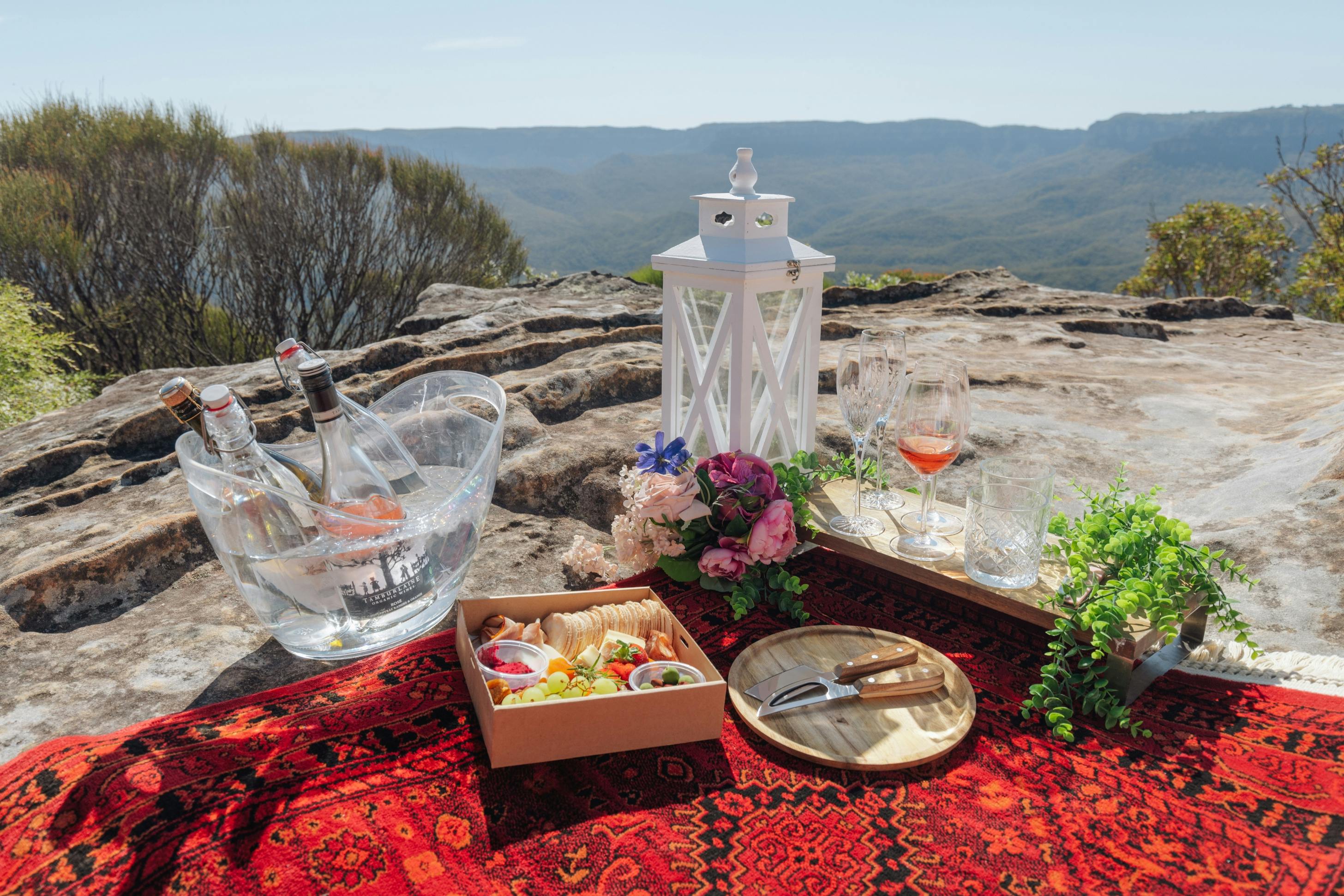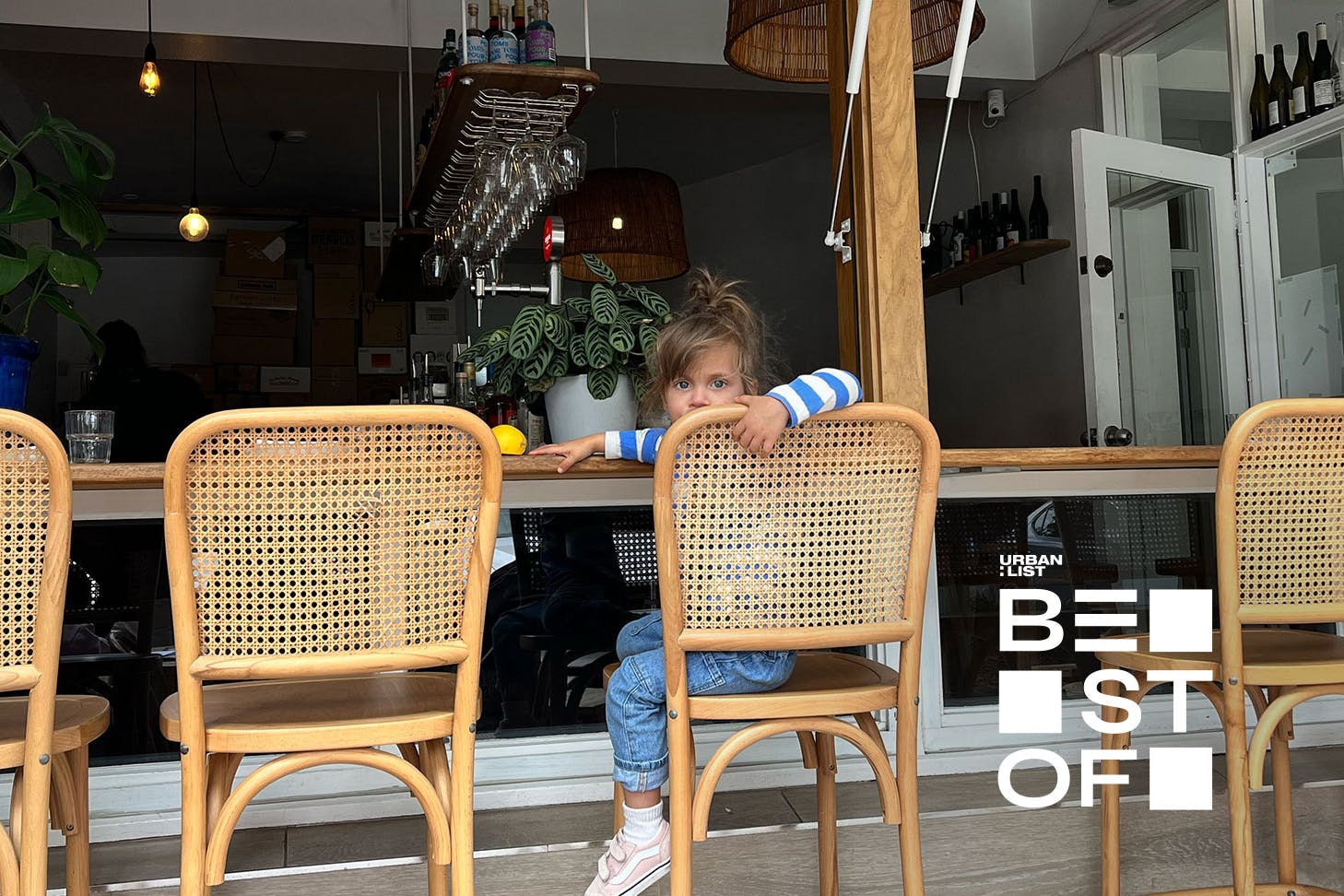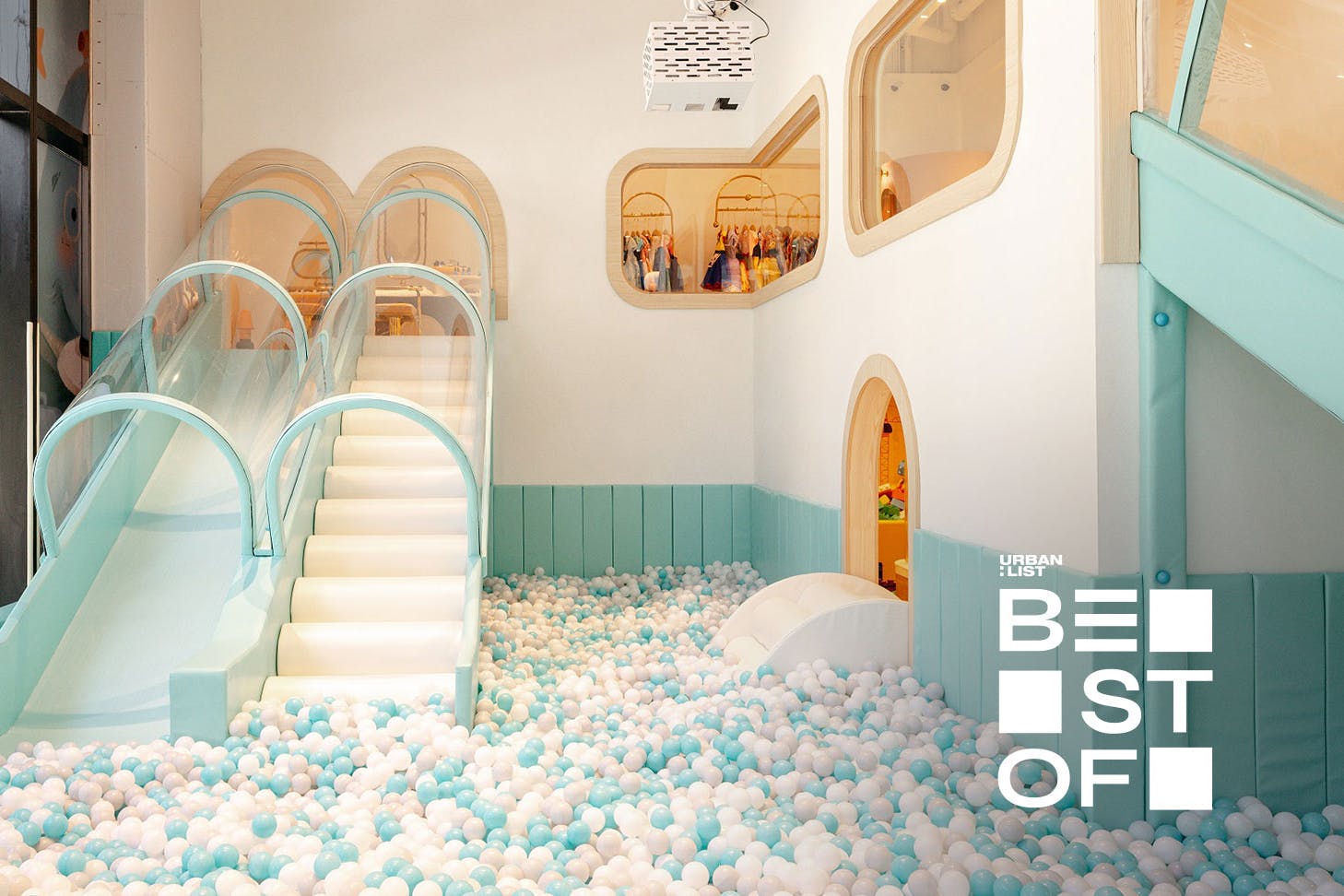.jpg?auto=format%2Ccompress&fit=crop&ar=3:2&w=340)
Urban List Guide To Sydney
Discover the best of Sydney—where to eat, drink, explore and escape, plus local news and cultural must-reads, all curated by Urban List.
News
See All
Your Guide To Lorde’s Ultrasound Tour In Sydney: Setlist, Start Time And Getting There

Is Central Coast Studios Australia’s Take On Hollywood? Here’s Everything To Know

The New Sydney Fish Market In Blackwattle Bay Is Finally Open
Features
See All
Keli Holiday’s New Record Capital Fiction Reintroduces The Peking Duk Star To The World

3 Aussie Creatives Share Their Must-Try Lunar New Year Dishes

“The Missing Piece In Circular Fashion Is People”: Marcus Crook On How HoMie Puts Community First
Best Of Sydney
See All
Sydney’s Best Day To Night Venues For Long Lunches And Arvo Sessions

Mardi Gras Sydney 2026, Your Full Guide To The Parade, Parties And More

All Of The Best Things To Do In Singapore In 2026
Things To Do
See All
Pleasure Club, Odd Culture And The Old Fitz Are Banding Together To Bring Sydney Some Cocktail Class
.png?auto=format%2Ccompress&fit=crop&ar=3:2&w=340)
Sydney’s Outdoor Beach Cinema Is Back With The Perfect Summer Park-Up

The Best Gift Cards To Buy When You Need A Last-Minute Present
Food + Drink
See All
Sizzler Returns To Australia, Reviving A Pre-2000s Buffet Icon At Sydney Airport

Where To Find Sydney’s Best Smoothies, In The Age Of The Erewhon Economy

Visit A Volcano, Then Clock Off At A Vineyard in This Coastal City Worth Crossing the Ditch For
Local Escapes
See All
The Best Beach Houses In NSW That You Can Book For A Getaway

24 Romantic Getaways To Book In NSW For Valentines Day

20 Of The Best NSW Tiny Homes For Your Next Off-Grid Getaway
Urban List Guides
- Australia
- New Zealand
- Asia
- Rest of the world
Rest Of The Best

64 Of The Best Shows And Movies On Disney Plus Australia (February 2026 Edition)

91 Of The Best Movies On Netflix Australia To Stream Tonight (February 2026)

What’s On This Weekend In Sydney

Sleepy Bloc
After years running a roasting project, the team behind Sleepy Bloc decided it was time to build something physical.

Process The Clubhouse
Process The Podcast has announced the launch of The Clubhouse — a limited 12-month creative space in Surry Hills positioned as Australia’s first community and event venue built around a podcast.

Bronte Road Fish
After 17 years serving French fare to the locals of Waverley, Bronte Road Bistro is taking on a full-blown rebrand, emerging as Bronte Road Fish.

Salumerie Bondi
Salumerie has just opened in Bondi dining precinct The Hub, on Hall Street—designed as an all-day Italian eatery and neighbourhood spot.

10 Of The Best Spots For Yum Cha In Sydney

One Of Mexico City’s Most Famous Taquerias Is Coming To Manly

Where To Celebrate Lunar New Year In Sydney In 2026

AORI
Now open on King Street Wharf, AORI is a Japanese restaurant from the team behind Alegre and Callao, marking a deliberate shift in direction for the group.


Foli Bakery
Foli Bakery’s Campsie outpost wasn’t originally meant to be a customer-facing café.

Darling Glebe
Darling Glebe is the latest venture from celebrated chef and restaurateur Jeff Schroeter, bringing classic French technique, dramatic interiors and a serious martini program to the historic Darling Mills.

29 Valentine’s Day Gift Ideas That Your Special Someone Will Love

Sydney’s Best Flower Delivery And Florists

Bad Bunny Sydney 2026: Set Times, Setlist, And How To Get There

Crumb Leppington
Tucked into a local shopping strip in Leppington is Crumb — a fast, friendly sandwich spot created by two southwest Sydney locals.

Heaps Normal Health Club
Heaps Normal Health Club could be the third-space we've been missing, pending their fixed opening hours later this year.

Fior Gymea
Fior is an elevated but casual Italian eatery from the people behind Surry Hill's staples Jane and Arthur.

Effie’s Balgowah
Tucked away on a suburban street corner just outside of Manly's hustle and bustle is Effie's—a cafe-slash-wine-bar from the brains behind Noon, Sunset Sabi, Busta and Chica Bonita.

The Best Accommodation In Orange For A Wine-Filled 2026 Weekend

Zara Larsson Is Officially Touring Australia This October, Here’s How To Score Presale Tickets

The Best Mont Blanc-Style Coffee In Sydney To Level Up Your Order

Pitstop Hamburgers
Behind the Thora General Store, midway between Bellingen and Dorrigo, you’ll find Pitstop—an old-school roadside burger shop.

Ard Sydney
To take an Instagram-based cake catering and market business and turn it into a fully-fledged brick-and-mortar bakery is no small feat—but Christiana from Ard Bakery has done exactly that.

Betto Deli & Cucina
When Andrea Bettini opened Betto Deli & Cucina in Erskineville, he set out to create the kind of venue he wished already existed.

Ina’s Bagels
Ina’s Bagels is a small, New York–style bagel shop in Marrickville, owned and operated by bagel-obsessed Salina Tam.

Ed Sheeran Brings His Loop Tour To Sydney In 2026: Here’s What To Expect

58 Of The Best Places To Stay In 2026 According To Our Travel Editor

Sydney’s Best Breakfast Plates Signal A Broader Cultural Shift
.png?auto=format%2Ccompress&fit=crop&ar=3:2&w=520)
Happy Shop
Happy Shop is the newest venture from Happyfield owners Jesse Orleans and Chris Theodosi—this time, with an elevated fast food focus.

Knotted Burwood
Korea’s viral dessert brand has landed in Sydney, with Knotted opening its first Australian store in Burwood.

Three Blue Ducks Burradoo
The much-loved hospitality group is opening a new venue on a working farm in the Southern Highlands.

.png?auto=format%2Ccompress&fit=crop&ar=3:2&w=340 340w)
Step Inside Sydney’s Most Iconic Red Room For A Good Cause This Mardi Gras

19 Gifts For Her That Are All Killer, No Filler

Fun Date Ideas In Sydney That Aren’t Just Dinner And A Movie

Cross Section Bondi Junction
Sydney’s most talked-about sandwich shop is making its first big move.

Folio
The swish bar at Sydney's Roslyn Packer Theatre has a tableside choccy mousse service.

Winona Wine Rozelle
This wine shop stocks way more than sips, boasting a curation of the coolest foodie gifts from glossy chilli oils to slick pasta sauces.
.png?auto=format%2Ccompress&fit=crop&ar=3:2&w=520)
Flaminia
Two decades after opening Pilu at Freshwater, Giovanni Pilu and Marilyn Annecchini expand their coastal legacy with Flaminia—an Italian restaurant cradled by Sydney Harbour.

26 Of The Best Airbnbs In NSW For A Gorgeous Getaway In 2026

Now Open: The Best New Restaurants, Bars And Cafes In Singapore

Brit-Pop Is So Back: Pulp Kicks Off Their Australian And New Zealand Tour This Month

L’Antica Pizzeria Da Michele
Established in 1870, this OG Naples pizzeria brings over 150 years of pizza prowess to Sydney CBD.

Everyday Creamery
The duo behind Tokyo Lamington are stepping back into the world of ice cream—and this time, they’re doing it with a softer touch.

Spezia
A new Italian restaurant with a piazza feel is gearing up to anchor the hospitality offering at The Lands by Capella precinct when it opens at Circular Quay next year.

Reset Studio Double Bay
Double Bay has welcomed Reset Studio, a boutique wellness spot designed to feel more like a refined private residence than a commercial facility.

Pizza Oltra Hosts Cinnamon Club’s Valentine’s Day Music Pop-Up This February

Sydney’s Best Banana Puddings And Where To Find Them

Beyond The Beach: 8 North Queensland Adventures You Won’t Want To Miss

Arms Length Bar
Operated by a team with serious hospo pedigree, Arms Length is the Potts Point all-rounder you wish was on your street

Lode Rozelle
Lode is conquering Sydney's inner west with the opening of their Sydney flagship in Rozelle, expanding their OG viennoiserie to a 60-seat café.

Disco Pantera

Aambra
Aambra is the newest venture from owner Cristian Gorgees, spotlighting Levantine culture and cuisine in the heritage-listed Rose Bay Uniting Church.

The Best Bacon And Egg Rolls In Sydney For Your Sunday Morning Fix
.png?auto=format%2Ccompress&fit=crop&ar=3:2&w=340 340w)
Sydney Cinémathèque Launches At AGNSW With 35mm Runs, Shorts And Emerging Filmmakers

15+ Restaurants To Book For Valentine’s Day In Sydney In 2026

Algorithm Potts Point
Algorithm Potts Point is up and running, with its very own curated menu and house beans.

Bar Herbs
Bar Herbs is the Sydney CBD’s new downtown bar by the MUCHO group, replacing Herbs Taverne.

Pippo’s Pizza E Cucina
Pippo's Pizza E Cucina is a home-style Italian pizza restaurant from the owners of Redfern's La Coppola, focusing on old-school hospitality and local charm.

Rude Boy Doughnuts
Rude Boy Doughnuts is posing us a question: can you make a splash in the Sydney food scene, without overcomplicating things?

What’s Open In Sydney This Easter Long Weekend

Hear Pamela Anderson Tell Her Story For One Night Only When She Hits Sydney And Melbourne This April

A Southern Highlands Icon, Reborn: Inside Ardour’s $10M Milton Park Glow-Up


South End
Towards the quieter end of King Street, you'll find South End—a polished slice of European dining on the outskirts of Newtown.

Bar Allora
Bar Allora is the first collaboration between Table For and The Maybe Group, an all-day Italian bar and restaurant.

Joe’s Tavern
A cosy 30-seat New York–inspired spot where steak, seafood, and a perfect martini never go out of style.
.png?auto=format%2Ccompress&fit=crop&ar=3:2&w=340 340w)
PSA: Singapore Airlines Just Announced Huge Flight Deals To Help Tick Off Your 2026 Bucket List

Gifts For Mum: 41 Awesome Presents She’ll Actually Love

The Best Facials In Sydney In 2026

The Best Restaurants In Newtown Right Now

The Best Pizza In Sydney You Should Have Ticked Off Your List By Now
.jpg?auto=format%2Ccompress&fit=crop&ar=3:2&w=340 340w)
The Best Restaurants In Manly Right Now

Marrickville Gets A Breakfast Collab Between Mates With Sambol Sandos, Falooda And Miso Chai

Table Tok Supper Club Is Built Around Bengali Home Cooking And Great Conversation

10 Valentine’s Day Gift Ideas That Go Beyond Flowers And Chocolates

Take Monday Off, Here’s Where To Watch The Super Bowl In Sydney

Pool Days And Award-Winning Musicals: This All-In Escape Is Primed For Your Next Group Getaway


Give Someone A Little Self-Care With This Gift Guide For All Things Beauty And Wellness

28 Of The Best Gifts For Kids Of Every Age And Stage

Alert The Ton: Bridgerton Season 4 Just Dropped, Here’s Everything You Need To Know

18 Of The Best Pet-Friendly Airbnbs Near Sydney To Explore In 2026

Sydney Easter 2026: What To Expect, Weather Wise

We’ve Found The No-Overthinking Date Night That Always Delivers

The Best Diners In Sydney For Comfort Food And Cosy Booths

8 Must-Do Experiences When You’re At Changi Airport In Singapore

Sydney Opera House’s All About Women Festival Is Back For 2026—And The Lineup Is Stacked

Caretaker’s Cottage And Shake Shack: What’s On The Australian Open Food And Drink Menu For 2026
.png?auto=format%2Ccompress&fit=crop&ar=3:2&w=340 340w)
NSW Drivers Can Now Claim A New Round Of Toll Relief As $60 Weekly Cap Continues

NSW Commits $4.2M To Expand Shark Safety Measures This Summer

Food Writer Becca Wang Shares Her Go-To Lunar New Year Recipes For Year Of The Horse

Harry Styles’ Australian Tour Presale Tickets Go On Sale Today, Here’s Everything You Need To Know

The Best Restaurants In Parramatta Right Now

The Best Bars In Sydney For Knockoffs And Nightcaps

50+ Of The Best Things To Do In Sydney In 2026

The Best Hotels In Sydney To Book For Your 2026 City Break

Here’s How You Can More Than Double Your Annual Leave In 2026

How Daniela Maiorano Blends Her Abruzzo Roots With Byron Bay Values For Simple, Flavourful Hosting

The Best Kid-Friendly Dining In Sydney Right Now
.jpg?auto=format%2Ccompress&fit=crop&ar=3:2&w=340 340w)
18 Of The Best Sydney Airbnbs To Book For A Top 2026 Vacay

Where To Hit Up This January 26 Public Holiday In Sydney

The Best Private Dining Rooms In Sydney For Special Occasions

Sydney’s Lockout Laws Have Officially Been “Completely Abolished” After 12 years

From Safaris To City Exploring: Where Our Team Is Flying In 2026

Make A Plan To Visit Mungo National Park, An Alien-Like Expanse Of Desert Lakes And Dunes

How To Show Up: Invasion/Survival Day Rallies Happening Across Australia On January 26

Your Guide To The Best Shopping In Singapore
.jpg?auto=format%2Ccompress&fit=crop&ar=3:2&w=340 340w)
Solaré, Sydney’s 150-Foot Restaurant Superyacht, Has Boarding Passes Starting From $35 Per Person

Sydney’s Best Play Centres For Endless Indoor Fun

Sydney’s Best Pilates Studios To Stretch And Sweat In

“Authentic Allyship Involves Real Commitment To Truth-Telling”: Why Jan 26 Is No Day To Celebrate

The Ultimate Sydney Local’s Gift Guide

Euro Summer Bound? These Deals Have A Singapore Stayover Sorted

10 Of The Best Cafes In Western Sydney Right Now

Home Run Holiday: How Comedian Samantha Andrew Took A Swing On A Trip To South Korea
.png?auto=format%2Ccompress&fit=crop&ar=3:2&w=340 340w)
From Sun-Drenched Sips To Signature Cocktail Stations: How We’ll Be Entertaining This Summer

57 Of The Best TV Shows And Movies To Stream On Paramount+ Australia (2026 Edition)

Sipping And Savouring On The Waitematā: These Are Auckland’s Best Waterfront Eats And Sips

PSA: Perth Festival’s 2026 Lineup Is So Good It’s Worth A Trip Out West

Run, Don’t Walk: New Balance Is Opening A New Sydney Store This Month

The Best Cafes And Restaurants In Cronulla, No Matter The Occasion

Sydney’s Best Running Clubs To Join In 2026

The Best Restaurants In Barangaroo In 2026

17 Of The Best Restaurants In Sydney’s Chinatown Right Now

The Best Restaurants In The Sydney CBD In 2026


